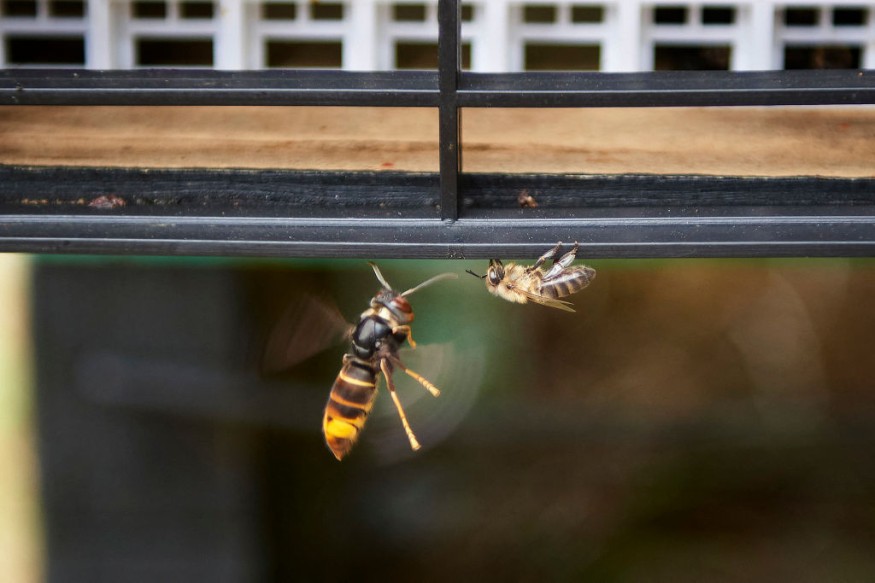A deadly Asian hornet swarm is threatening the United Kingdom, forcing Brits to prepare for the worst, especially during the upcoming summer season, wherein the giant winged-insects are expected to fly through the skies over the UK. Local authorities have asked the public to monitor and report any sightings of the venomous animals as they pose a threat not only to bees but also to humans.
Formerly called murder hornets, Asian giant hornets (Vespa mandarinia) underwent a name change in 2022 known as: northern giant hornets. Authorities and scientists involved in the renaming of V. mandarinia argued the decision was due exaggerated attribution and racial misconceptions about the insect's former name.
UK Deadly Hornet Swarm Threat

The looming threat in the UK has not been abrupt. In fact, the giant hornet threat started in recent years when the venomous species was first reported in the UK.
Last year, there were indications that several hornets were observed in Jersey, one of the territories of the Channel Islands located between England and France. Experts believed the hornets used the island to populate and a medium to cross the channel.
The approaching UK deadly hornet swarm was also responsible for the deaths of five people in France last year. A combination of powerful stings and venomous toxins inside their bodies, the hornets can decimate entire honeybee colonies and even humans in relatively rare incidents.
Murder Hornets Misconception
V. mandarinia is not a new species with known origins in Asia but came into prominence in Europe in recent years and in the United States during the middle of the novel coronavirus pandemic (COVID-19) in 2020, where it was nicknamed as the "murder hornets," as mentioned before.
In particular, Asian giant hornets are native in East Asia, South Asia, Southeast Asia, and even in parts of the Russian Far East region, according to the Center for Invasive Species and Ecosystem Health. Their distinct physical characteristics are evident from their large orange heads and black eyes, as well as yellow and black-striped body.
Being an invasive species, northern giant hornets are adept at killing honeybees and other related species as a source of nutrient to sustain their large body size. Experts clarified the giant wasps are not actively seeking for humans and everything in their path, hence the name change was made.
Northern Giant Hornet Attacks
Despite their generally evasive behavior towards humans, there are still rare cases of fatalities due to multiple stings.
In Japan, V. mandarinia stings kill up to 50 people each year, according to a New York Times article, as cited by the website Scientific American.
In 2013, the hornets have reportedly killed at least 42 people and injured over 1,675 others in three cities in China's Shaanxi province, according to the local government, as reported by CNN.
Related Article : No More 'Murder' as Invasive Asian Hornet Gets Renamed
© 2025 NatureWorldNews.com All rights reserved. Do not reproduce without permission.





